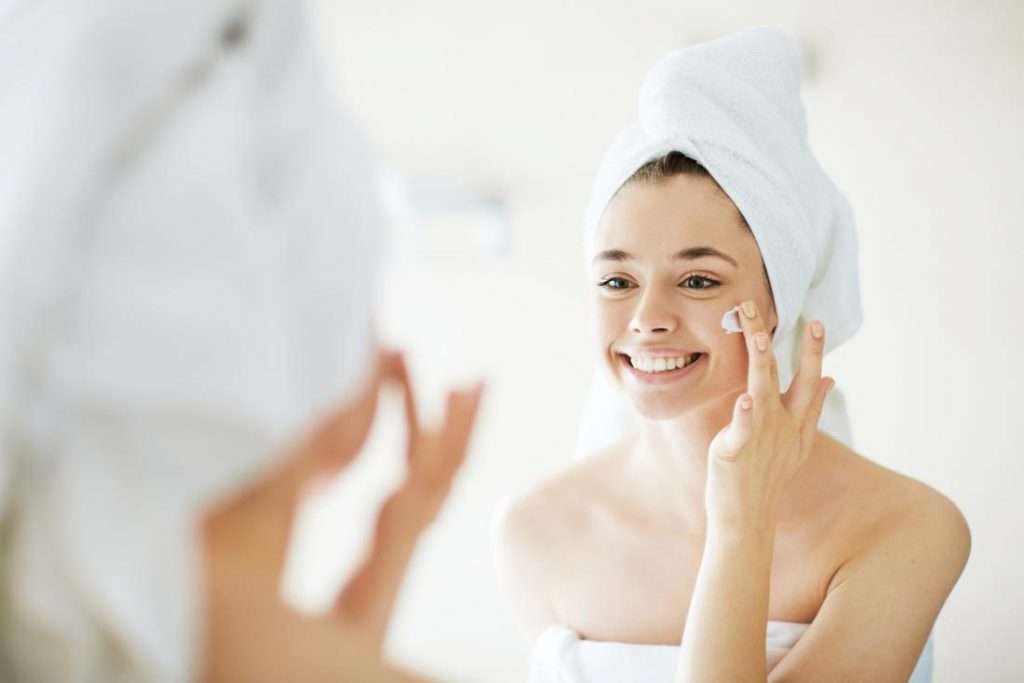Healthy skin is not only about appearances but also serves as a vital indicator of overall well-being. The largest organ in the human body, skin acts as a protective shield against germs and infectious agents. While the skincare industry is booming, true skin health goes beyond just topical treatments. In this guide, we will explore a holistic approach to attain healthy and radiant skin.
Table of Contents:
Part 1 – Cleansing and Moisturizing
- Gentle Cleansing: Regular but not excessive washing is essential. Your skin harbors a protective layer of dead skin, natural oils, and beneficial bacteria that safeguard your body from harmful invaders.
- Optimal Water Temperature: When bathing, choose short showers or baths with warm water. Prolonged exposure to hot water can strip the skin of essential oils.
- Mild Cleansers: Select hypoallergenic cleansers to preserve your skin’s natural moisture. Harsh soaps can leave your skin feeling tight and dry.
- Pat Dry: After bathing, refrain from vigorous rubbing; instead, gently pat your skin with a towel, allowing the remaining moisture to air dry.
- Exfoliation: Exfoliate once or twice a week to remove the top layer of dead skin, revealing fresh, radiant skin beneath, thereby promoting a healthy glow.
- Moisturization: Regular moisturization not only keeps your skin from drying out but also enhances its texture and tone, providing an added layer of protection.
Part 2 –Eating a Healthy Diet
- Vibrant Diet: Consume a variety of fruits and vegetables, aiming for a rainbow of colors to ensure a rich intake of essential nutrients, vitamins, and minerals.
- Skin-Friendly Foods: Foods rich in antioxidants, selenium, coenzyme Q10, and flavonoids promote overall health and radiant skin.
- Vitamins A, C, and E: Incorporate foods high in these vitamins as they provide different benefits, all contributing to skin health.
- Essential Fatty Acids: Include omega-3 and omega-6 fatty acids in your diet, as fats are crucial for healthy skin.
- Hydration: Proper hydration is key; your skin, like the rest of your body, relies on adequate water intake.
- Sugar Reduction: Minimize added sugars in your diet to prevent the formation of wrinkles and sagging skin, as sugar can damage collagen and elastin.
Part 3 – Taking Care of Your Body
- Regular Exercise: Incorporating regular exercise into your routine is essential for overall health, including lung and cardiovascular health, which in turn positively impacts your skin.
- Stress Management: Chronic stress can adversely affect your skin, exacerbating conditions such as acne, psoriasis, rosacea, and eczema. Prioritize relaxation techniques to maintain skin health.
- Smoking Cessation: Quitting smoking is crucial as it not only affects your overall health but also significantly impacts your skin’s appearance and vitality.
- Adequate Sleep: Sufficient sleep is essential for a multitude of reasons, including maintaining healthy skin.
- Sun Protection: Protect your skin from excessive UV exposure. While some sun exposure is necessary for vitamin D production, it’s important to use sunscreen to avoid skin damage.
- Infrared Sauna: Consider using an infrared (IR) sauna to stimulate collagen production, reducing wrinkles and promoting skin health.
- Skin Cancer Awareness: Be vigilant for signs of skin cancer, as early detection is key to successful treatment.
- Professional Guidance: Seek professional help for any unusual skin issues or persistent irritations, as a dermatologist can provide expert advice and treatment.
Part 4 – Caring for Aging Skin
- Targeted Treatments: Address your primary skin concerns first, avoiding the overuse of anti-aging products, which can stress the skin.
- Customized Moisturizer: Choose a moisturizer suited to your skin type and use it daily, as daily moisturization becomes increasingly important with age.
- Nutrient-Rich Diet: Maintain a diet rich in vitamins, minerals, and antioxidants to support aging skin.
- Topical Antioxidants: Apply topical antioxidants to combat sun damage, wrinkles, and dark spots by preventing free radicals from harming your skin.
- Alpha-Hydroxy Acids: Consider using creams containing alpha-hydroxy acids to exfoliate, remove dark spots, and maintain youthful skin.
- Beware of “Miracle” Claims: Be cautious of overly hyped skincare products, as no product can entirely erase wrinkles or reverse aging.
- Continued Care: As you age, continue your skincare regimen with sunscreen, hydration, and regular skin cancer checks, maintaining the health and appearance of your skin.
Article provided by wikiHow, a wiki that is building the world’s largest and highest quality how-to manual. Please edit this article and find author credits at the original wikiHow article on How to Get Healthy Skin. Content on wikiHow can be shared under a Creative Commons License.

